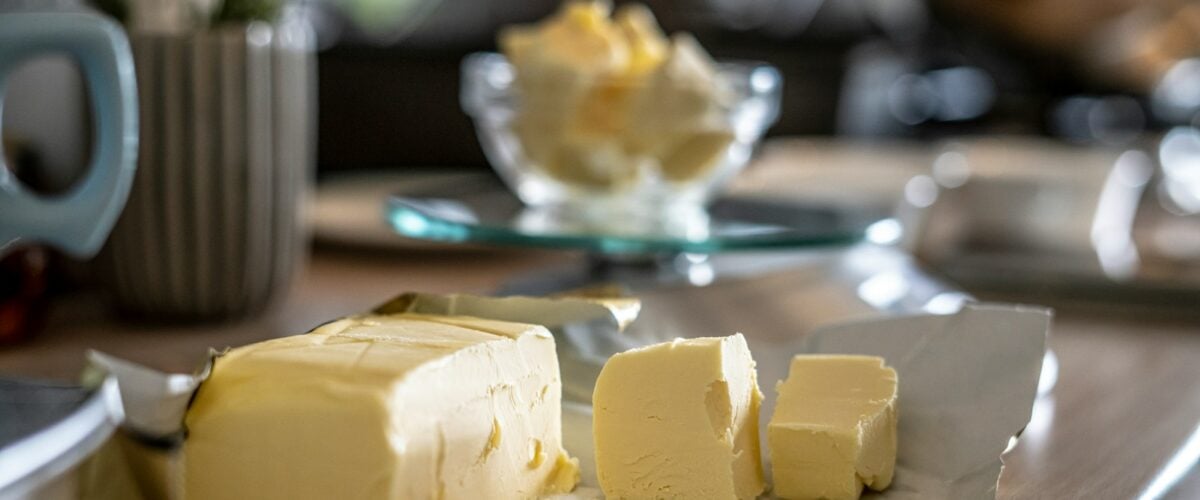
Fans of cooking with butter will be delighted to learn that butter, even though it comes from milkcontains only a small amount of lactose. Are you lactose intolerant? Find out more about butter and its lactose content in this article, so that you can develop the best eating routine for optimal digestive comfort on a daily basis.
Butter, a low-lactose food...
How much lactose is in butter?
Butter is a fat obtained by beating the cream from milk.. As such, it belongs to the dairy food family. Low in calcium and high in fat, it is mainly considered as a source of fat, like olive oil and other vegetable oils used for cooking and seasoning.
What about lactose in butter? This raw dairy product contains only small traces of lactose, the milk sugar found in abundance in milk (cow's, goat's, sheep's, etc.), condensed milk, powdered milk and fresh cream. It is estimated that 100g of butter contains the equivalent of 0.6g of lactose. By way of comparison, a person with moderate alactasia can consume up to 12g of lactose a day without experiencing the symptoms associated with this food intolerance: abdominal pain, bloating, flatulence, diarrhoea, etc.
This low lactose content is actually explained by the butter-making process. The churned cream used to make it is rich in fat or lipids, whereas lactose is a sugar or carbohydrate. With around 80 % of lipids for 20 % of water, butter is definitely not a classic dairy product, which will please lactose intolerant people for whom butter is a real guilty pleasure.
Can I eat butter if I'm lactose intolerant?
Generally speaking, the key is moderation in the case of lactose intolerance. While butter can be eaten by most intolerant people without causing the undesirable effects mentioned above, it is advisable to limit as far as possible the consumption of recipes and dishes that are particularly enriched with butter, such as escargots à la bourguignonne and their traditional parsley butter.
Would you like to try high-butter recipes at home or indulge in generously buttered dishes in restaurants despite your lactose intolerance? Then try lactase supplementation, an effective way of consuming lactose without compromising your digestive health. At LACTOLERANCE, lactase-based food supplements come in a variety of forms to suit all lifestyles.
Choose LACTOLERANCE 4500 in cases of moderate or severe alactasia. LACTOLERANCE 9000 if you have significant alactasia, so you can eat butter and other dairy products with complete peace of mind on special occasions. On a day-to-day basis, rely on LACTOLERANCE 1/DAY for ongoing protection against the symptoms of lactose intolerance. Finally, for the richest foods, such as pastries and cream-based dishes, opt for LACTOLERANCE ULTRA for optimum digestion!

Hello, I'm Vincent
Like you, I'm lactose intolerantI know exactly what you're going through and the difficulties you encounter on a daily basis. For over 10 years, I've been helping our customers to use our dietary supplements and giving advice and tips on how to improve their digestive comfort. I'm also a keen cook and gourmet, so you'll find my favourite recipes for a lactose-free diet in this blog.
Lactose intolerance is not inevitable! With LACTOLERANCE you can digest with complete peace of mind





